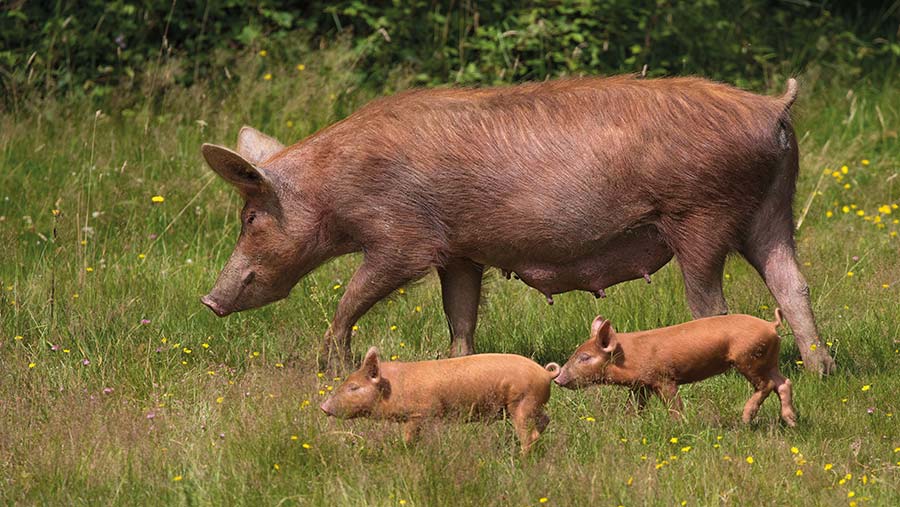Opinion: Rewilding won’t be warm and fuzzy, it will bite
 © Lee Dalton/Alamy Stock Photo
© Lee Dalton/Alamy Stock Photo It is notable that in the media and trendy political circles there is increasingly an unquestioned assumption that “rewilding” farmland is a good thing, with little thought as to why it might be desirable.
It’s just wrapped in some warm fuzzy sentiment that somehow it makes the world a better place, but when you do get some detail, the rationale can become very questionable.
One of the more striking justifications I have heard from rewilding proponents is that it will give British people somewhere to ramble, so they can enjoy “the frisson of knowing they are not the top predator”.
See also: Blackberries and rabbits won’t sustain the masses
On reading this, my mind conjured up a countryside populated by bears and wolves – all a short walk from a rural railway station.
But then I started to think about less glamorous predators – such as ticks which can leap onto a passing human and give them lyme disease.
Admittedly ticks don’t have big gnashing teeth, but I wouldn’t entirely dismiss them if you fancy a ramble where you risk not returning unscathed.
Lyme disease is quite common in southern England and increasing rapidly.
Putting the thrill of being at the mercy of wild creatures like ticks to one side, when the little blood sucking blighters are about, it is best to cover your legs.
Worldwide, the most prolific man-killer is not one of the large beasts that stalk the wild places.
It’s the mosquito, which still kills well over 500,000 every year thanks to its ability to inject people, usually children, with malaria.
Now I’ll admit it’s unlikely that rewilding parts of the UK is going to significantly increase the numbers of malaria-carrying mozzies, but it needs to be remembered that you don’t have to go far back into history to find widespread outbreaks of malaria in lowland England.
My own backyard – the coastal marshes of the Thames estuary – had hundreds of cases of malaria as recently as 1920.
I despair at the fashionable but misplaced notion that by having vast tracts of unmanaged land in its raw state, you will give people the chance to experience some sort of authentically primitive existence
Furthermore, it wasn’t until the 1950s that countries such as Italy finally eradicated the scourge of malaria through land drainage and insecticides – the very opposite of rewilding.
By reverting back to natural boggy habitats through rewilding, mankind will increase mosquito numbers and the malaria risk.
More generally, I despair at the fashionable but misplaced notion that by having vast tracts of unmanaged land in its raw state, you will give people the chance to experience some sort of authentically primitive existence by being exposed to the mercy of the natural world.
To my mind, an afternoon spent hiking is not “getting back to nature” in its true sense.
To properly experience living in a wilderness, you really need to endure a true hunter-gatherer lifestyle – without the benefit of shelter or heating or a reliable food supply.
Anything less is tantamount to suggesting those who enjoy historical re-enactment days, complete with sandwich breaks and portaloos, really do know how it feels to be a pikeman at the battle of Bosworth.
The fact is, trying to eke out a truly wild existence should be avoided, as such lives are nasty, brutish and short.

